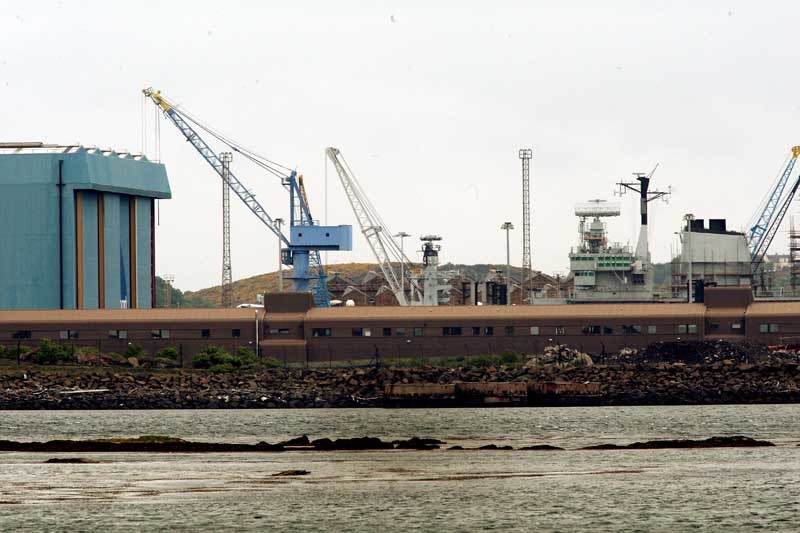It is “inevitable” that Rosyth would lose its contract to build British warships in the event of an independent Scotland, an MSP with close links to the dockyard has insisted.
Labour’s John Park said the SNP Government’s claim that the Fife dockyard and the Clyde would both retain their military contracts post-independence was “absolute nonsense”.
The Mid Scotland and Fife MSP, a former union leader at Rosyth, spoke after finance secretary John Swinney insisted the dockyards would stay in work as they provide “value for money.”
The Perthshire North MSP said, “You only take your orders for defence equipment to the places that can deliver them for value for money, and in an effective technical fashion to the relevant levels of quality.
“As a consequence of that, the UK Government has brought major shipbuilding contracts to Scottish yards.”
He added, “In Scottish yards, there is that quality, there is that competence, there is that value for money and that is not in any way affected by the question of independence.”
Asked if that would still be the case in the event of an independent Scotland, Mr Swinney added, “I would expect that to be the case, yes.”
But Mr Park, who was heavily involved in Rosyth dockyard’s Trident refitting campaign in the 1990s, said that view “lacked all credibility.”‘Nonsense’He said, “It is absolute nonsense to say that Rosyth could continue to build British warships in an independent Scotland.”
He added that in the event of Scotland being separated from the UK, defence chiefs would “inevitably” move the work to sister yards such as Devonport in Plymouth or Portsmouth.
“Certainly the Scottish workers would still have the skills but they would have to migrate down to England if they wanted to stay in work.
“The SNP’s position lacks all credibility. They need to be honest with the public about the implications of independence.”
Mr Park’s view was echoed by the union that represents the 1700-strong workforce at Rosyth.
Raymond Duguid, chairman of the Rosyth Trades Union Council, said, “If they wanted to give the work to an independent Scotland they would have to open it up to European tender.’Struggle'”At the minute you can keep the work in your own country, but to give it to an independent Scotland they would have to open it up to places like France, Germany and Holland. Rosyth would really struggle.”
Mr Swinney’s view was also at odds to that of UK defence secretary Liam Fox, who warned on Tuesday that a vote for independence would have “serious” implications for Scotland’s defence industry. And Murdo Fraser, the Scottish Conservatives’ deputy leader, said Mr Swinney was talking “drivel”.
The Mid Scotland and Fife MSP said, “The recent UK Government investment in Scottish shipbuilding with the two aircraft carrier orders has safeguarded many jobs and is a real boost to our economy. The SNP’s claims are the stuff of fantasy.”
Labour MP Iain Davidson, chairman of Westminster’s Scottish Affairs Select Committee, accused Mr Swinney of “astonishing complacency.”
He said, “The Royal Navy has never before bought a warship from a foreign shipyard and every other country with the capacity to do so has built their own naval ships in home yards.”
Rosyth dockyard’s 1500-strong workforce celebrated in October when the UK Government confirmed a £5.2 billion contract to build HMS Queen Elizabeth and HMS Prince of Wales would be spared from cuts.
Mr Park started at Rosyth in 1989 as an electrical apprentice and became the dockyard’s youngest ever full-time trade union convener in 1998.
